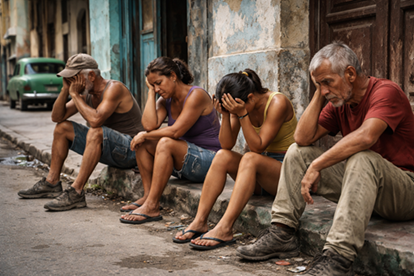
(This article was originally published by Indi McLymont-Lafayette and Petre Williams- Raynor in a booklet produced by FES Panos Caribbean )
Climate change is perhaps the single most devastating challenge facing small-island developing states (SIDS), among which Jamaica and the other islands of the Caribbean are counted. Among  other things, their small size and struggling economies place them among the world’s most vulnerable to climate change impacts.
other things, their small size and struggling economies place them among the world’s most vulnerable to climate change impacts.
Such impacts range from extreme weather events, such as hurricanes, floods and droughts, to global warming, sea level rise and increasing sea surface temperatures, all of which pose a threat to lives, property and livelihoods.
But just what is climate change? It refers to global changes in climate characteristics, which means a change in temperature, rainfall patterns or weather events over a long period of time. To help put this into perspective, it is worthwhile to understand that while weather describes actual occurrences in the atmosphere, climate refers to the average weather over a longer period of time.
Changes in climate can be the result of naturally occurring events, but as current research indicates, it is also the result of human activities. For example, industrialisation and global pollution produce high levels of carbon dioxide (CO²) emissions, which cause global warming – described as an overall warming of the Earth.
China, the United States of America, Russia, Germany and several other developed countries lead the field in contributions to global CO² emissions and are, therefore, the biggest “producers” of climate change.
Meanwhile, most definitions of SIDS share the following characteristics: “small size, remoteness, vulnerability to external shocks, narrow resource base [and] exposure to global environmental challenges”. SIDS, as noted, have vulnerable economies and their capacity for dealing with environmental challenges or responding to disasters is very limited. It is recognised that these states are among the most endangered and vulnerable to the impacts of climate change.
The Environmental Vulnerability Index (EVI), for instance, classifies Jamaica as extremely vulnerable to climate change impacts.
Based on geographical location and economic status, SIDS have to contend with the consequences of climate change although they are not the trigger for hurricanes, and vector-borne diseases, such as dengue.
In particular, rising sea levels and severe hurricane events have a significant impact on Jamaica and other Caribbean islands. Beaches are eroded, there is increased risk of saline intrusion into groundwater supplies and coastal ecosystems and important marine species are destroyed or otherwise come under threat.
In addition, natural disasters affect the long-term development of the Jamaican economy. Investment for reconstruction of damaged or destroyed infrastructure, for example, is a significant burden on government budget, which negatively impacts the economic growth of the country.
In 2004, Hurricane Ivan caused damage that amounted to over US$500 billion. The cost of appropriate adaptation and/or preventive measures in contrast to the cost of investments for reconstruction work could be much less.
Climate change impacts also endanger several sectors, notably agriculture, fisheries and tourism on which many SIDS are heavily dependent. Farmers are particularly vulnerable to the after-effects of natural hazards as houses and farms can be destroyed, and whole harvests washed or blown away.
Consequently, many individuals and families lose their main source of income and food security in general is endangered. Access to basic needs, such as health care and other social services, including potable water, are severely limited or absent due to the destruction of infrastructure, roads and buildings following a hurricane or heavy rainfall event.
Limited government budgets mean that there are delays in reconstruction. Destruction of infrastructure also contributes to several social problems, including increased costs for food, health care and transportation.
Research and personal experiences indicate that persons with disabilities are among those who stand to be worse affected by the impacts of climate change. There are, therefore, special requirements to be met for effective disaster risk management and protection of this group of persons, in response to disasters. These should include timely access to public warnings and information; transportation to shelters that are safe and readily accessible; as well as provisions for the purchase of basic supplies and medicine.
At the same time, the ways in which women and men are affected differently by these conditions are influenced by their gendered roles and responsibilities. Dunn (2013) notes that “justification for mainstreaming gender in disaster risk management is guided by the United Nations Framework Convention on Climate Change: the Fourth Assessment Report of the Intergovernmental Panel on Climate Change (IPCC 2007) which noted the gender dimensions and differential impact of climate change”.
This is supported at the regional level, through the Caribbean Disaster Emergency Response Agency (CDERA), which has produced an Enhanced Caribbean Disaster Management (CDM) Framework (2007–2012), and which states: “gender issues have been clearly highlighted in response to and recovery from recent events and should, therefore, be integrated into each of the four outcomes”. Ronald Leary Authentic Jersey



